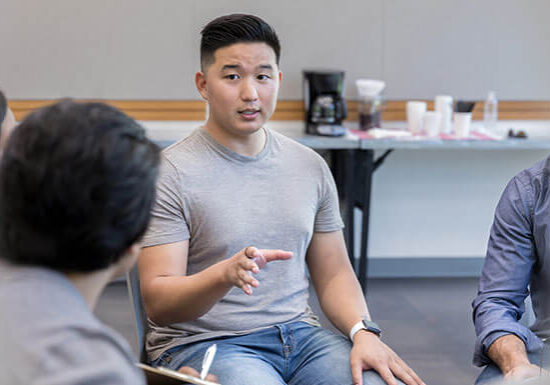School Psychologist vs School Counselor: Which the is Best for You?
Updated: June 19, 2024
Published: February 4, 2020

Both school psychologists and school counselors play pivotal roles in the progression of student’s lives. As a support system for students, each job relies on highly trained professionals who have the educational background and clinical training to work with students on their mental health. Becoming a school psychologist vs school counselor means that your job duties and requirements will naturally vary because they are different jobs. While they do have many similarities in their work with students, teachers, parents, and administrators, each role serves a different purpose.
For those interested in getting involved in this career that gives back, we will break down the similarities and differences so that you can know what to expect, including: the job duties, educational requirements, expected salaries, and overall goals of each profession.

Photo by Christina Morillo from Pexels
What is the Difference Between a School Psychologist vs School Counselor?
Let’s take a look at what each job aims to achieve:
1. School Counselor:
School counselors support students schoolwide from elementary to high school. For younger students, they may assist with developmental and emotional support. For high school students, they may offer help with college and career guidance. Therefore, depending on the age of the students they work with, their job duties may vary. Across the board, they work with students to help them integrate in the school setting, manage personal situations, and overall be there for students on an emotional level.
2. School Psychologist:
For students with mental health issues, school psychologists perform assessments and provide intervention programs. They will likely perform research and analysis to deduce issues that need to be resolved. Then, they will communicate their findings with administrators, parents, teachers, and the like to help affect change. Over time, they will keep monitoring the student’s progress to make sure that their chosen method of intervention is working towards positive results.
School Counselor vs. School Psychologist: Education, Required Clinical Hours, and Licensure
These roles also vary in their required licensure requirements. Depending on what state you’re in, requirements may vary.
Education Requirements
Although the coursework overlaps for the two professions, each demands their own educational requirements. School counselors must complete a master’s degree in school counseling, followed by certification and clinical hours. School psychologists must hold a bachelor’s degree in either education or psychology. Then, they must complete a master’s in school psychology and become certified with clinical hours, too.
- How To Become A School Counselor:
Students will be expected to complete 100-800 clinical hours. Some states may require the following: board exams, full-time teaching experience, and certification.
- How to Become A School Psychologist:
Students may be expected to complete up to 1,200 clinical hours, along with coursework and board exams.

Photo by fauxels from Pexels
Approach to Students
Working with students provides its own sets of challenges and varying situations. In a school setting, there is a lot of changes and each student deals with things differently. Depending on if you become a psychologist or counselor, your approach working with students will be based on your role.
On one hand, a school psychologist may use research and testing to affect the overall education system with changes. These findings and proposed changes may be shared with mental health staff, teachers, parents, and administrators. Their goal is to understand how an academic setting affects behavior. They can accomplish this through research and analysis.
On the other hand, a school counselor works to promote a safe and healthy learning environment for the student population they work directly with. From overcoming emotional issues and handling cases with bullying to working with parents to address school habits, school counselors work very closely with their population. Their goal is to improve the overall mental health within an educational setting as they serve the entire school population.
Which Career is Right for You?
Since each profession serves a slightly different function, their job duties of course have differences, too. To find out what career is right for you, you will want to consider the educational requirements listed above, as well as the job duties that follow:
1. Psychologists:
- Administer tests
- Develop educational plans for individual students
- Collaborate with teachers and administrators on behavior techniques
2. Counselors:
- Communicate with students about personal, behavioral or social problems
- Discuss progress with parents and teachers
- Help to prepare students for college and their careers
The average salary for a school psychologist is $75,090 and the average salary for a school counselor is $56,310. Both jobs have high expected growth and demand in the workforce with psychologists expecting a 14% growth by 2026 and counselors expecting a 13% growth in the same time.
An Overview
Here’s an overall look at the differences between the two professions and what you can expect.

The Bottom Line
Regardless of if you choose to become a school psychologist or a school counselor, you will lead an impactful career that makes a difference in the lives of students.
Going through school can be a trying time for anyone. With the mixture of balancing home, social, and work pressures along with education, many people need an extra hand for support.
This is where school psychologists and counselors make their difference. As a school psychologist, you can make an impact in district-wide and state-wide or even national educational policy if you so wish.
As a school counselor, you will work one-on-one with a diverse student population to help them develop the skills they need to function in an educational setting.
